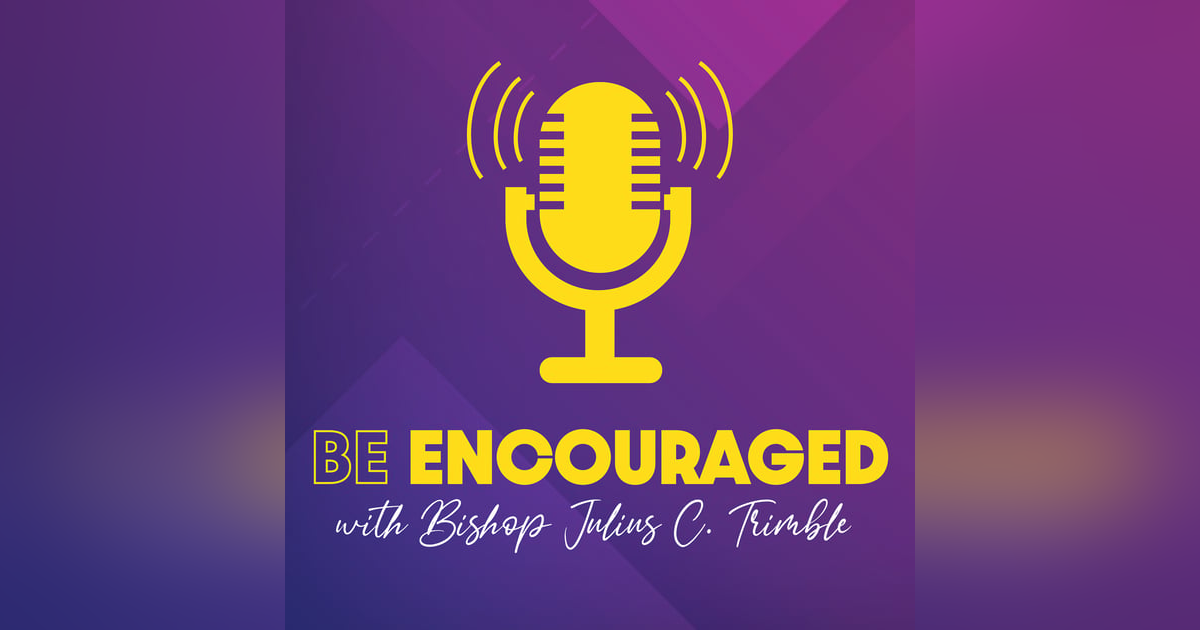A Front Porch for All People Rev. John Edgar (Part 1)

Bishop Julius C. Trimble is the Resident Bishop of the Indiana Area of the United Methodist Church.
Bishop Trimble has the personal mission to encourage all people with the love of Jesus Christ to rise to their highest potential. It is his commitment to his personal mission that led Bishop Trimble to create the “To Be Encouraged” Podcast along with co-host Rev.Dr. Brad Miller.
Bishop Trimble says, “I am compelled by Jesus to share with you an encouraging word or two about Jesus, theology, the Bible, the pandemic, the environment, racism, voting rights, human sexuality, and the state of the United Methodist Church.”
To Be Encouraged with Bishop Julius C. Trimble is to be published weekly and is available at www.tobeencouraged.com and all the podcast directories.
https://www.inumc.org/bishop/office-of-the-bishop/
John W. Edgar is the founding pastor emeritus of the United Methodist Church for All People, in Columbus Ohio as well as the founding executive director of Community Development for All People. He serves as adjunct faculty at the Methodist Theological School in Ohio.
He is the Author of the book discussed in Episode 051 "A Front Porch For All People"
https://www.frontporchbook.com/
This is Part one of a two part episode featuring a conversation with Rev. John Edgar about his book "A Front Porch for All People". Part 2 will be available at
Rev. John Edgar served as the executive Director of Community Development for All People (CD4AP) a from its inception in 2003 until he retired in June 2022. CD4AP is a multifaceted community development corporation with the mission of improving the quality of life with persons living on the Southside of Columbus, Ohio.
The Free Store, a flagship ministry of CD4AP, provides free clothing and household items to 20,000 persons each year. Over the past 17 years, CD4AP has developed $125 million worth of affordable housing. CD4AP operates a variety of health and wellness initiatives and is deeply involved in youth development programming. The All People’s Fresh Market provides fresh fruits and vegetables to more than 350 families every day and has grown to be one of the largest distribution site of free food in central Ohio. Much of this work improving social determinants of health is done in close collaboration with Nationwide Children’s Hospital.
Rev. Edgar is the founding pastor of the United Methodist Church for All People that is closely affiliated with CD4AP. This remarkably diverse congregation is comprised primarily of low-income persons. An ordained pastor for 45 years, he has previously served as a district superintendent and dean of the cabinet in the West Ohio Conference of the United Methodist Church.
In retirement, Rev. Edgar is serving as the half-time president of Columbus Housing Enterprise (CHE), a new non-profit organization whose mission is to preserve naturally occurring affordable housing. CHE is acquiring apartment complexes valued at $100 million which will be operated to ensure the rents remain affordable for decades to come.
Rev. Edgar has a Master of Divinity degree, cum laude from Harvard University and a Bachelor’s degree in sociology, magna cum laude from Miami University. He has been an adjunct faculty member at the Methodist Theological School in Ohio.
Rev. John W. Edgar Email: jedgar@4allpeople.net


